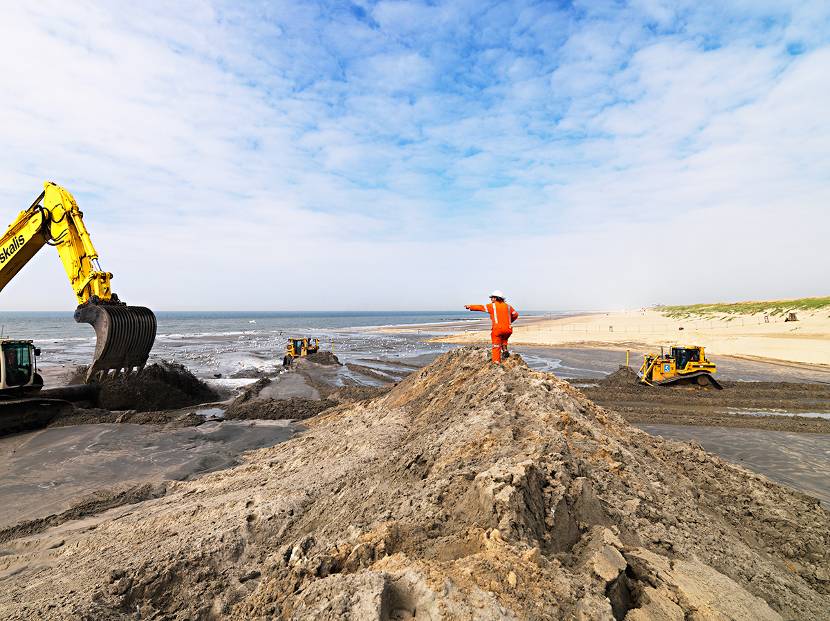Sea level rising more rapidly
The media are focusing a great deal of attention on the publication by Nature magazine, in which scientists describe how the Antarctic ice sheet is melting faster than current data shows. According to the scientists, this is due to several processes that have previously not been recognised. The result may be that in the centuries ahead, the sea level will rise by more than is currently expected.

In the Delta Programme, we are working with the latest insights that have been properly investigated. The new scientific insights regarding the melting Antarctic ice caps must be taken seriously. For that reason, it is important for the IPCC, the UN climate panel, to translate these new insights into a future sea level forecast. This is expected to be accomplished in 2018. The Royal Netherlands Meteorological Institute KNMI is currently examining the probability of such a scenario developing. For the time being, sand replenishments along the coast will enable the Netherlands to cope with the predicted +1 meter scenarios until 2100. The new IPCC analyses may be reason for the Netherlands to take even farther-reaching steps.
The essence of the Dutch approach is that we factor in multiple scenarios for 2100 and beyond, adapting them where appropriate. We adjust our course if need be, keeping level-headed and alert. The issue is urgent, yet not acute. We must continue to expend our best efforts on reducing the temperature rise by quickly making our country sustainable. However, the report on the Antarctic ice caps once more indicates that climate adaptation is an issue requiring continued and urgent effort, in the Netherlands as well as across the globe.
The Dutch approach sets an example for the world. We are collaborating with many nations, for example in the Delta Coalition initiated by Minister Schultz van Haegen. The Netherlands is well prepared. The law stipulates that water policy must be focused on disaster prevention. We have been working on that since 2010 in the Delta Programme, the Delta Plan for the 21st century - with a Delta Fund of an annual 1 billion euros and a dedicated government commissioner, the Delta Programme Commissioner, who draws up the plans together with all the parties involved. This is unique in the world. The Cabinet recognises the importance of this quite clearly and continues to allocate resources. We must not shirk our obligations. Upon a positive evaluation of the Delta Act – which is now being conducted, after 5 years – we must keep up the pace in our work on the delta.